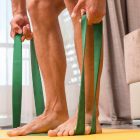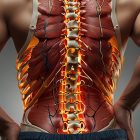Synopsis
Elbow pain, especially conditions like tennis elbow and golfer’s elbow, is a frequent problem among athletes, professionals, and individuals performing repetitive tasks. It can restrict mobility, reduce grip strength, and affect daily activities such as lifting or typing. Treatments like physio for tennis elbow provide structured, non-invasive solutions to reduce pain and restore normal function. Specialised care like tennis elbow physiotherapy treatment targets inflamed tendons and strengthens the surrounding muscles, ensuring lasting recovery. Broader programmes such as physiotherapy for tennis elbow offer manual therapy, ultrasound, and stretching routines tailored to each patient’s condition. At the same time, elbow physiotherapy addresses not only tennis elbow but also other concerns like fractures, stiffness, or ligament injuries. For those searching online, terms like physio for elbow pain reflect the demand for immediate and accessible treatments. In more severe cases, specific rehabilitation through elbow fracture physical therapy helps patients regain mobility and prevent complications. This blog explores how physiotherapy restores strength, prevents recurrence, and improves quality of life for individuals with elbow pain.
Table of Contents
- Understanding Tennis Elbow and Elbow Pain
- Role of Physio for Tennis Elbow
- Benefits of Tennis Elbow Physiotherapy Treatment
- Comprehensive Recovery with Physiotherapy for Tennis Elbow
- Broader Scope of Elbow Physiotherapy
- Accessibility and Care through Physio for Elbow Pain
- Post-Trauma Rehabilitation with Elbow Fracture Physical Therapy
- Orthocure Clinics and Gyms – Expert Elbow Pain Solutions
Understanding Tennis Elbow and Elbow Pain
Tennis elbow, or lateral epicondylitis, is caused by overuse of the forearm muscles, leading to tendon inflammation. It is common among athletes, office workers, and people performing repetitive actions. Beyond tennis elbow, elbow pain can also stem from fractures, arthritis, or soft tissue injuries. Left untreated, it limits mobility and strength. Structured rehabilitation like physio for tennis elbow provides targeted relief and recovery.
Role of Physio for Tennis Elbow
Physio for tennis elbow focuses on relieving inflammation and improving tendon function. Therapists use manual techniques, stretching, and strengthening to restore movement. Patients learn proper posture and ergonomics to reduce stress on the joint. Over time, physiotherapy ensures long-term healing and reduces the risk of recurrence.
Benefits of Tennis Elbow Physiotherapy Treatment
Tennis elbow physiotherapy treatment offers numerous benefits. It reduces pain, restores grip strength, and improves mobility. Specialised techniques like ultrasound and soft tissue mobilisation target affected tendons directly. The treatment not only relieves current discomfort but also prevents future flare-ups. With regular sessions, patients regain confidence in daily and sports activities.
Comprehensive Recovery with Physiotherapy for Tennis Elbow
Broader physiotherapy for tennis elbow programmes combine various approaches for holistic care. Strengthening exercises improve support around the joint, while stretching restores flexibility. Manual therapy enhances circulation and accelerates healing. Education on ergonomic adjustments helps patients avoid repetitive strain. This comprehensive care ensures sustainable results.
Broader Scope of Elbow Physiotherapy
Elbow physiotherapy extends beyond tennis elbow. It addresses conditions like golfer’s elbow, arthritis, and ligament injuries. Rehabilitation programmes are customised to suit each condition. By focusing on overall joint health, elbow physiotherapy ensures patients regain full functionality. It also reduces the likelihood of chronic pain.
Accessibility and Care through Physio for Elbow Pain
For many, searching for physio for elbow pain highlights the need for convenient treatment. Accessibility ensures patients can attend regular sessions and achieve consistent progress. Quick intervention prevents complications, especially in cases of repetitive strain. Professional care ensures safe and effective recovery.
Post-Trauma Rehabilitation with Elbow Fracture Physical Therapy
Elbow fractures require structured recovery. Elbow fracture physical therapy (H3) provides safe exercises that restore mobility without straining the healing bone. Gradual strengthening rebuilds muscle support, while stretching prevents stiffness. This rehabilitation ensures full recovery and reduces long-term complications. Patients regain strength and confidence in using the elbow.
Orthocure Clinics and Gyms – Expert Elbow Pain Solutions
At Orthocure Clinics and Gyms, advanced protocols for physio for tennis elbow and related conditions are offered. Our expert physiotherapists create tailored plans using manual therapy, targeted exercises, and posture correction. From tennis elbow physiotherapy treatment to elbow fracture physical therapy, Orthocure ensures comprehensive care. Our focus on both immediate relief and long-term prevention empowers patients to live pain-free and active lives.
FAQs
What is physio for tennis elbow?
Physio for tennis elbow is a structured treatment that reduces tendon inflammation and restores movement. It uses exercises, stretching, and manual therapy. The therapy also prevents recurrence. Patients benefit from long-term pain relief and improved mobility.
How effective is tennis elbow physiotherapy treatment?
Tennis elbow physiotherapy treatment is highly effective for pain relief and functional recovery. It reduces inflammation and strengthens surrounding muscles. Regular sessions improve grip strength and flexibility. Patients can return to normal activities safely. The treatment also lowers recurrence risk.
What does physiotherapy for tennis elbow involve?
Physiotherapy for tennis elbow involves a combination of manual therapy, stretching, and strengthening exercises. Ultrasound and soft tissue techniques may also be used. The therapy is tailored to the patient’s needs. It ensures both short-term relief and long-term recovery.
Can elbow physiotherapy help with conditions beyond tennis elbow?
Yes, elbow physiotherapy addresses a wide range of conditions including golfer’s elbow, arthritis, and ligament injuries. It restores mobility, strengthens muscles, and improves joint function. The therapy is designed for holistic recovery. It reduces the likelihood of chronic pain.
What is elbow fracture physical therapy?
Elbow fracture physical therapy is rehabilitation designed for post-fracture recovery. It involves gentle mobilisation, stretching, and strengthening exercises. The therapy restores mobility while ensuring safe healing. Patients regain function and prevent long-term stiffness. It supports complete rehabilitation after trauma.





